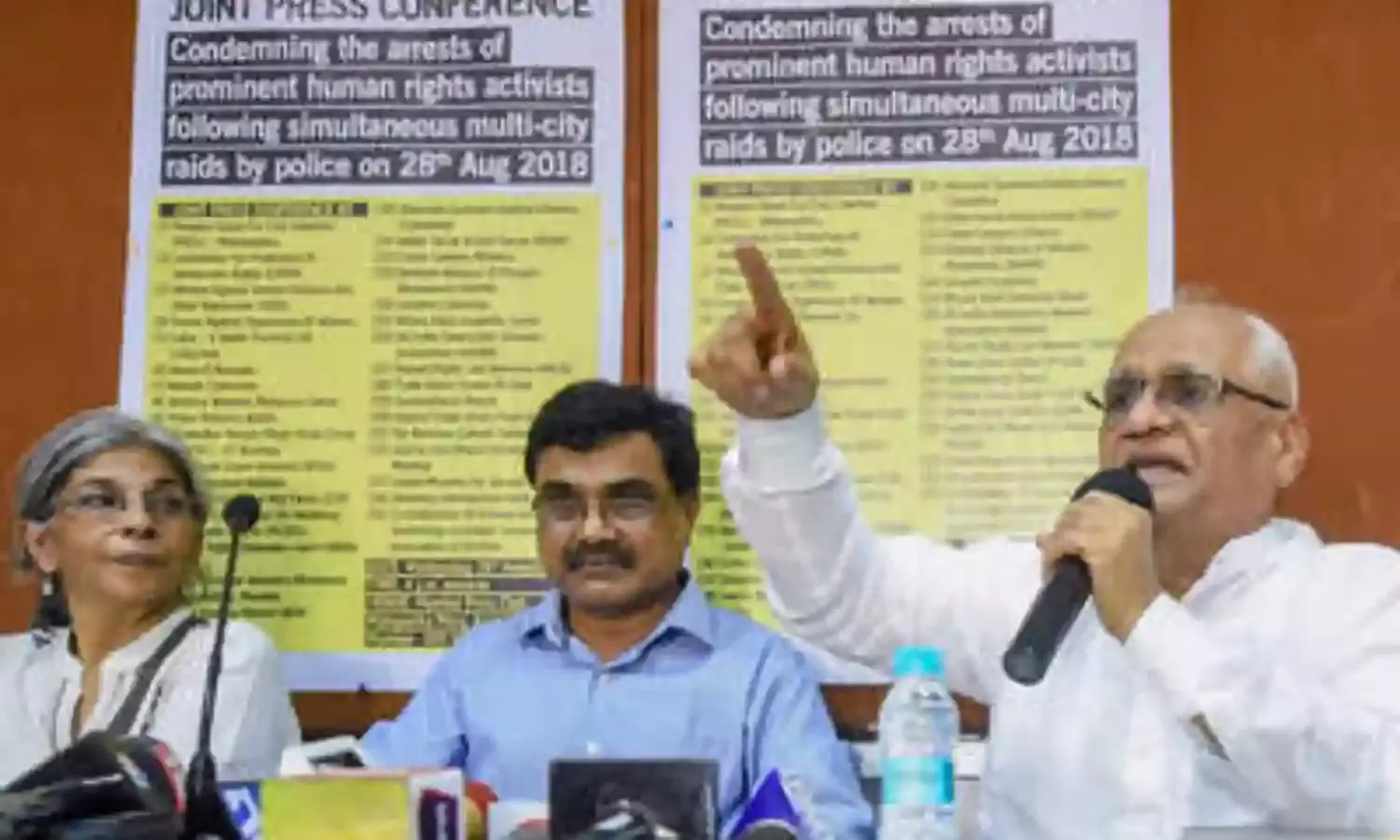'By Instilling Fear the Govt Is Trying to Muzzle the Marginalised': Justice Kolse Patil
Convenor of Elgar Parishad, Justice Patil speaks to The Citizen

NEW DELHI: “This is the first time in my life that government is trying so hard to suppress the voices of marginalized. Since, 1976, it’s the first time that I haven’t been given permission to organise a rally”.
Retired Justice Kolse Patil, one of the conveners of the Elgar Parishad had been a lawyer as well as a public prosecutor before he became a High Court judge. He retired at the age of 47, and for the past three decades he has been associated with various social movements, particularly for the marginalized sections of the society and trying to fight the communal forces.
The Citizen (TC) interviewed Justice Patil in the light of Bhima-Koregaon violence that happened exactly a year ago.
TC: What is your opinion on the contemporary socio-political spectrum within the country?
Justice Patil: Brahminical system has been dominant in our country for many years. Whenever a marignalised voice challenges their hegemonic rule, they aren’t able to bear the fact that marginalized voice is challenging their power.
Present political discourse comprises majorly of hindutva beliefs. They lack constitutional values.
Justice Sawant and I have been trying to fight the spread of hindutva forces since 1976.
Can you elaborate upon the ‘Elgar Parishad?’
Elgar means loud declaration. Parishad resembles small meetings with the marginal and vulnerable sections of the society to promote the sense of equality and save the constitutional values.
Through our small group meetings, we want to bring awareness among the people that, “The right-wing forces do not accept our present constitution. They believe neither in democracy nor secularism.” We want to challenge the current majoritarian beliefs.
I believe, “In past one year, we have succeeded a little bit as brahiminical forces and current regime is trying to silence our voice. When local administration or government tries to silence your voice using coercive measures, it means you’re doing something right.”
How do you evaluate political happenings of past one year post – Bhima –Koreagon violence of January 2018?
Right-wing groups led by Rashtriya Swayam Sewak (RSS) have always tried to interrupt meetings of parishad. These interruptions never came in limelight as they happened on small scale.
The incident of January 1, 2018 came to limelight because it represented the unrest and feeling of alienation that exists within the dalit and marginalized sections. Post January 1, violence, right wing groups and Narendra Modi government have tried to subvert the issue and associated the case with “Naxalites”, which is shameful.
It shows the intolerance existing among brahminical forces. “By instilling fear of arrests under draconian laws, brahminical forces are saying a dalit or someone from the vulnerable group can’t reclaim their space in public.”
Right wing groups have been trying to indict violence among various castes within the rural areas of Maharashtra.
Post January 1, 2018 violence, have you seen any change in public gatherings and meetings?
Earlier also, we used to face difficulty in organising and mobilizing people. Local administration always keeps an eye on the meetings. But, since 2014, there is a rise in blatant abuse of power from the government when it comes to surveillance and monitoring of meetings.
For 2019, “Local administrations in several districts have not given us permission to organise the meeting. We have filed petition in the Bombay High Court. We are waiting for the hearing to take place. This is the first time in my life that government is trying so hard to suppress the voices of marginalized. Since, 1976, it’s the first time that I have been denied the permission to organise a rally.”
It is in violation of Article 19 according to which, “We have the right to hold the peaceful meetings and demonstrations on any public land within territory of our country.”



